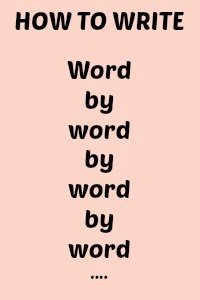Anyone who’s been writing a while knows
that the writing life isn’t easy. It often feels that there are more setbacks
than milestones. It’s part of the biz. We slowly type those words on a blank
screen or scribble words on a lined notepad, only to find within seconds,
minutes, or days that what we’ve written isn’t nearly good enough, so we revise
and revise. And then we take it—if we’re lucky—to a trusted group of readers to
learn that the piece needs more work.
It’s the same with submitting a story. Once
that new work is ready to submit to a willing editor, agent, or publisher, we often
find the same type of setbacks and frustrations or worse, total indifference to
the work. Again, it’s part of the writer’s life. It’s also the part that sends
many folks packing onto new ventures, deciding they don’t need the aggravation,
and who can blame them?
But every once in a while good things
happen. Then it’s time to celebrate and reflect on how far you’ve come and,
above all, to pay it forward. I’ve just experienced such a month, beginning with
the news that my publisher, TouchWood Editions offered me a contract for the
fourth Casey Holland novel, The Deep End,
which will be published in September 2014. I’ve also just completed four
weekends of selling books at Christmas craft fairs and, to my surprise, I broke
my own record. I’m grateful for the many book buyers who bought copies because
they believe in supporting local authors.
Lastly, I received word that my essay, “The
Wheels on the Bus” that discusses the Casey Holland series has appeared in Mystery Readers Journal, Murder in Transit
issue. I’ve never made it into a national magazine for mystery readers before
and again I’m grateful.
When things like this happen, it’s all the
more important to do what I can to help other writers. So, this weekend, I
bought another writer’s book, I told yet another writer about Access Copyright,
which he’d never heard of, and I honoured someone’s request to like their page.
This is only the beginning. In my experience, writers represent a close
community and we’re stronger when we help each other.
After all this, I've reconnected with the inspiration and the drive to keep working
hard Most of all, I learned how the importance of gratitude and to keep paying it forward.
You can find the issue at http://www.mysteryreaders.org/Issues/transit2013.html

